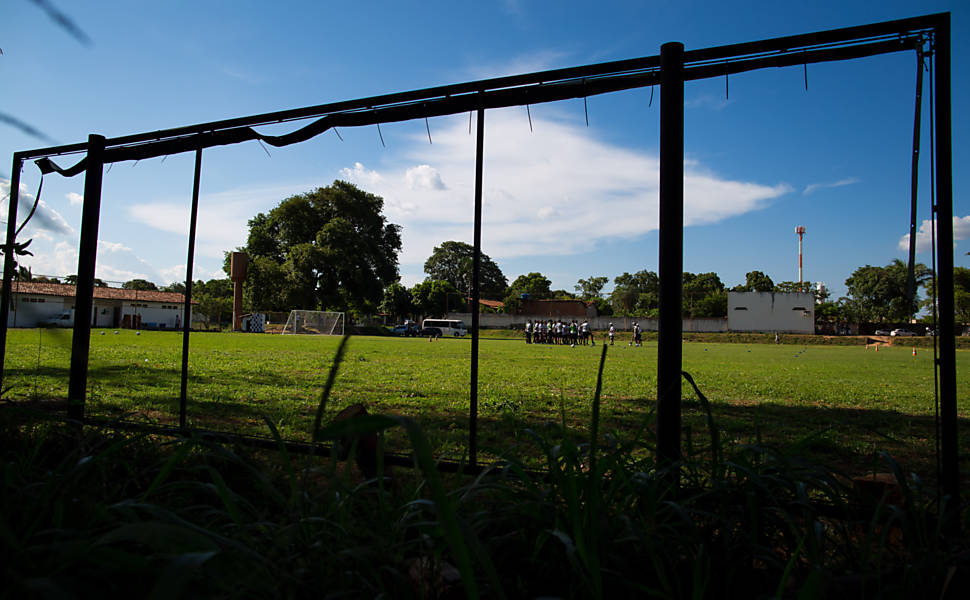Latest Photo Galleries
Brazilian Markets
12h03 Bovespa |
-0,14% | 129.028 |
16h43 Gold |
0,00% | 117 |
12h17 Dollar |
+0,39% | 5,0873 |
16h30 Euro |
+0,49% | 2,65250 |
ADVERTISING
With Almost No Fans, State Championships Begin in World Cup Arenas
02/02/2015 - 08h51
Advertising
SÉRGIO RANGEL
SPECIAL ENVOY TO CUIABÁ
After spending almost US$ 746 million to build World Cup stadiums with the argument that they also serve to revitalize regional football, Amazonas, Rio Grande do Norte and Mato Grosso have started their state championships without the promised party.
Amateur teams, unknown players, little money and empty stadiums will be the reality.
In Brasília, where the state championship started a week ago, the situation is even more precarious. The Candangão stadium already held almost half of its games behind closed doors because of a lack of security.
The Mané Garrincha stadium, built with more than US$ 373 million, will only host the final.
Less than a year after the World Cup, the government has cut the purse strings for local football.
In January, on the eve of the competition's start, the Regional Bank of Brasília (BRB) suspended its club sponsorship of almost US$ 373,000.
The Mato Grosso championship is the most symbolic of the post-Cup hangover climate.
Seen as the main stage of the competition, the Pantanal Arena was closed for a week due to a series of problems, ranging from leaks in its roof to theft of equipment.
It now operates at less than half of its capacity.
Aside from having issues with its stadium, Cuiabá is also home to several unfinished World Cup projects. The city's airport expansion has not been completed.
Kilometers of abandoned VLT (Light Rail) works can be seen alongside Cuiaba's streets. Estimated at more than US$ 373 million, the contract is surrounded by allegation of misappropriation of resources.
The four capitals were chosen by FIFA after pressure from Ricardo Teixeira, former CBF president and one of the organizers of Brazil's Cup.
He wanted to please the local politicians and decided to expand the number of World Cup host cities to 12.
Translated by JILL LANGLOIS




